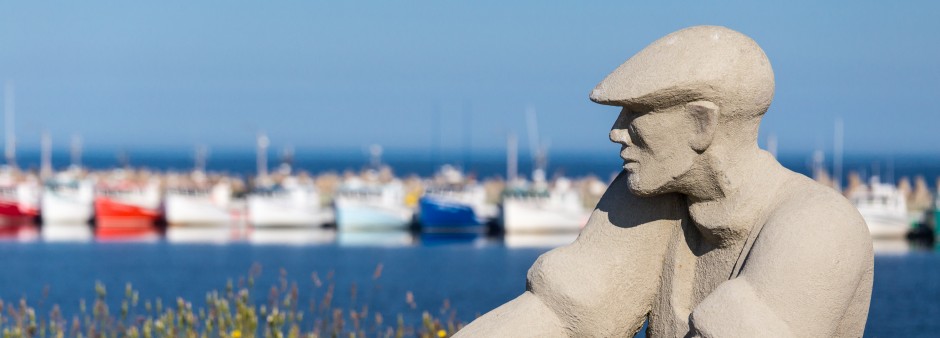


Madelinots have a special relationship with their part of the world, a wavy bond that brings them back to this place or takes them away from it. Everyday life, education or work lead some of us to experience the Islands on a part-time basis, during those precious stretches of time when we can get our feet in the sand again.
I have been repeating this experience for a few years now, as I learn to experience les Îles differently, from afar. What I am noticing, however, is that while the Islands do have a unique identity one can barely replicate, you never truly leave them. I would even say that for many Madelinots, distance is in part how we enjoy the Islands. Most people in my age group studied outside the archipelago at some point, and have sometimes continued living outside, in that mysterious elsewhere that we find so intriguing as young islanders.
The dream of going back is deeply embedded in the culture for quite a few Madelinots, even when circumstances prompt us to live in the city. Some gather in neighbourhoods, as they do in Verdun, Montréal, where a small Madelinots community has slowly been forming and gets together regularly. During my first few years as a Québec City resident, my frequent visits to Place Laurier gave me the opportunity to cross paths with compatriots visiting or living in the area. Some of my greatest friendships are in fact with Madelinots who have selected a home near mine.
Even with strangers I see and recognize thanks to a familiar accent or expression, a natural complicity takes place. We see similar experiences in each other, despite our differences.
In that way, it would be wrong to say that the Islands are cut off from the outside world. They are, because of their distance from the continent, in an essential relationship with the rest of the world around them. Les Îles adapt, interact with the world, and with their one-of-a-kind nature, inspire the creation of what I would call imaginary residences: those who have left the Islands establish, by writing about them and telling their stories, new ways of experiencing them. This doesn't only apply to writers: every time we answer the key question, where are you from, each time we talk about the Islands and our own experience with them, we find ourselves, for a brief moment, living there again.
We tend to think that a landscape defines us, but we forget how we also define this landscape. Scenery is not merely a geographical or aesthetic experience. It is something that everyone contributes to creating, through the way they tell its story. For example, I can see as I'm writing that I'm following, in my own way, this insight from writer Ian Fleming: to write a book, he would say, one must find a place they desperately want to leave and write until that allows them to successfully escape. Somewhat in contrast, I have found a place where I desperately want to return, and I write to be there again.